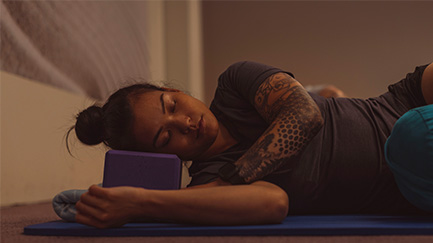We all know exercise is beneficial for a number of reasons, however, sometimes it’s hard to know what exercises we should be doing to improve our individual health and wellbeing. This is where an initial assessment can help.
What is an initial assessment?
An initial assessment is a one-on-one session with an Exercise Physiologist (EP) to paint a picture of a patient’s current health status. During this time, the EP will run through a list of questions and conduct baseline testing. This helps to assess movement and a develop a personalised exercise program to suit a client’s needs. Some of the testing includes:
- Wellbeing
- Range of motion
- Strengths and weaknesses (physical and perceived)
- Cardiorespiratory fitness
During treatment, baseline testing helps to review progress and adjust programs as needed.
What is an EP?
EPs are university qualified experts in advising exercise techniques, while considering a person’s injuries, disabilities, chronic disease, and mental health. A large part of the initial assessment and on-going treatment with an EP is helping patients to understand their condition and how best to manage it. The exercises EPs prescribe depend on an individual’s goals and perceived restrictions to achieving those goals.
Setting goals
Together, a patient and EP will decide on exercises best suited to their goals and desires. From here, the EP will use this information to formulate an exercise program that can be delivered in-person, via telehealth or via an app. With a prescribed exercise program, a patient can:
- Be in control of achieving their goals.
- Be assured they are not going to exacerbate injuries.
- Manage pain.
- Improve technique and optimise one’s performance.
- Learn to maximise time and move more efficiently.
- Improve quality of life.
How to get an initial assessment?
If working with an EP on your health and fitness sounds like something that you are interested in, you can follow these steps:
- Book in a session with your GP, who will assess your eligibility for a referral to Mates4Mates for exercise physiology.
- Call or visit your local Mates4Mates Family Recovery Centre and book in an initial assessment with an EP.
- Attend your appointment and be on your way to better physical health.
If you’re ready to take the next steps or require more information, reach out to the team today.
Written by Mates4Mates Exercise Physiologist, Harley Fox





